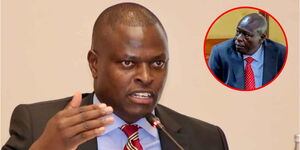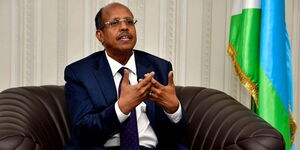A bill tabled before the National Assembly is seeking to reduce the number of people employed in the government from the same tribe by 10 per cent.
The National Cohesion and Integration Bill 2023, sponsored by Mandera West MP Adan Haji Yussuf, wants public entities to afford adequate and equal opportunities for appointment, training and promotion to members of all ethnic groups.
“A public entity shall not recruit or have in its employment more than one-fifth of its staff from the same ethnic community,” part of the bill states.
The chairperson of, the Committee on National Cohesion and Equal Opportunity argued that the exclusion and marginalisation of some communities is the leading cause for lack of cohesion among Kenyans.
“A public entity shall ensure representation of the diversity of the people of Kenya in the employment of staff,” the bill states.
The proposed National Cohesion and Integration Bill 2023, also warns employers against harassing potential employees or already hired staff.
Employers contravening the section on harassment are liable to a fine not exceeding Ksh5 million or imprisonment for a term not exceeding three years.
“An employer, his or her representatives or assigns shall not be subject to harassment by a person whom he or she employs or who has applied to him or her for employment."
A recent report by the Public Service Commission revealed that Rift Valley communities dominated most state jobs with 21.8 per cent, while the Mt Kenya region secured 19 per cent.
Nyanza communities followed with 12.4 per cent, while the Western Kenya region secured 9.6 per cent, indicating a lack of ethnic diversity in the public service.
Government organizations through the report stated that the conversion of temporary appointments to permanent & pensionable terms (35%) and direct (internal) appointments (22.4%) contributed to non-competitive recruitments.
“The highest number of officers recruited non-competitively were drawn from State Corporations and SAGAs with 466 (27.7%) of the total, followed by Ministries and State Departments with 290 (23.4%) officers, ” the report read in part.
To compound the challenges faced by the public service, Government Spokesperson, Isaac Mwaura, on January 19, attributed the shortage of technical staff in ministries to poor recruitment habits. Mwaura stated that ministries were hiring more support staff rather than technical ones.












